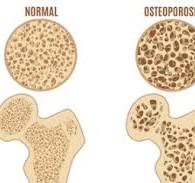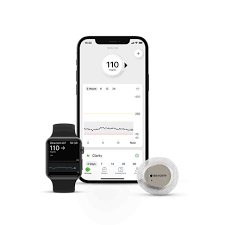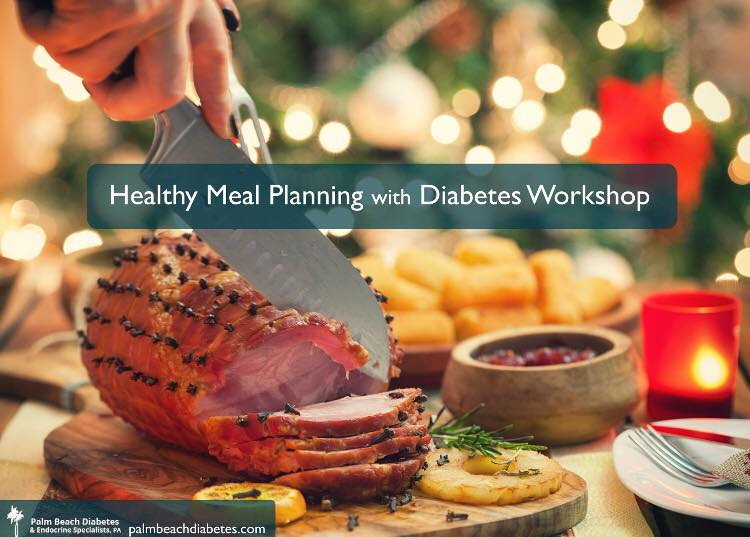Move Over Protein, Fiber is The Nutrient You Need in 2025!
By: Jessica Hrdlicka MS, RD, LD/N, CDCES

2024 was the year of Protein! Protein bars, shakes and snacks, but fiber may be even more important for better blood sugars, weight loss, cancer prevention and reduction in heart disease. Moving into 2025 increasing fiber intake is the way to go to improve digestion and your health.
Fiber is generally found in plant foods such as beans, lentils, vegetables, salads, fruit, nuts, seeds and whole grains. Fiber supplements may be warranted if you suffer from constipation, but obtaining fiber from foods can be more effective. Make sure to increase water intake when increasing fiber to help improve digestion. Fiber helps to slow down blood sugar spikes, improves cholesterol levels and can increase satiety making it easier to stick to your weight loss goals. Plus higher intake of fiber rich foods can reduce your risk of certain cancers including colorectal cancer.
Here is how to easily add more fiber to your meals or snacks:
- Add veggies to stir fry, soups, tacos & pasta dishes to still enjoy the foods you enjoy, but with added fiber. Peppers, onions, mushrooms, green beans, zucchini and spinach are easy veggies to add that cook up quick!
- Add berries to salads, yogurt or cottage cheese. Berries are packed with fiber, antioxidants and are considered a lower sugar fruit.
- Add chia seeds or flaxseeds to yogurt, smoothies, oats or avocado toast for an easy, crunchy fiber source rich in omega 3 fatty acids.
- Try meatless meals with beans or lentils such as tacos, chili, soups, or black bean burgers for a high fiber, heart healthy meal!
- Reach for higher fiber grains such as quinoa, wild rice or bulgur versus white rice to grain bowls, stir fry or casseroles for a fun spin on your favorite meals.
For more information on diabetes management, chronic kidney disease weight loss and nutrition or to schedule your CGM Class call 561-659-6336 ext 8012 to schedule an appointment today. Please enjoy our January 2025 Living Well with Diabetes Newsletter!
Osteoporosis: A Space Cause
By: Morolake Amole, M.D.
I think we can all agree that space travel is very cool. Astronauts are like real world superheroes. The selection process to be an astronaut and the preparation for space travel is extremely rigorous. One thing we don’t think about when considering these brave spacemen and woman are there bones. Protracted time in space has several physiological challenges, among them being reduction in the strength or density of your bones due to microgravity (reduced gravitational pull). You have likely heard of osteoporosis, which is a low bone density which leaves you susceptible to fractures. We routinely screen certain groups for this condition and offer different types of medication for treatment. A typical patient with osteoporosis is usually female and postmenopausal. However, reduced bone density is a real concern for all space travelers. This is a concern for all sexes and ages of astronauts. Why does space travel cause reduction in bone density? The bones are formed through processes that build them and break them down. This is called bone remodeling. These two process work in tandem to maintain healthy bones. When exposed to reduced gravitational pull, like when in space, there is an alteration in the careful balance of the bone remodeling system with the net result being bone breakdown. It is said that for every 1 month in space, there is a ~1% reduction in done density (NASA.gov).
Why does space travel cause reduction in bone density? The bones are formed through processes that build them and break them down. This is called bone remodeling. These two process work in tandem to maintain healthy bones. When exposed to reduced gravitational pull, like when in space, there is an alteration in the careful balance of the bone remodeling system with the net result being bone breakdown. It is said that for every 1 month in space, there is a ~1% reduction in done density (NASA.gov).
This accelerated bone density reduction is a significant concern for astronauts. As a result, there are many things to consider before takeoff. First, it is important to maintain adequate levels of calcium and vitamin D through supplementation. Second, there is exercise. There are treadmills and exercise bicycles in space for the astronauts to utilize. Lastly, there are medications for the management of osteoporosis. All these things are part of the management of accelerated bone loss in space.
Let’s bring things back down to earth for a moment. If you can believe it, osteoporosis management is the same for astronauts as it is for us earthlings. A combination of appropriate vitamin supplementation, weight bearing exercise and medications are key to maintain healthy bones.
Interpreting your Continuous Glucose Data
By: Jessica Hrdlicka MS, RD, LD/N, CDCES
 Using Continuous Glucose Technology such as Freestyle Libre or Dexcom Sensors can truly be beneficial for people living with diabetes. These devices can provide helpful data to determine which foods, medications and workouts best support your blood sugars.
Using Continuous Glucose Technology such as Freestyle Libre or Dexcom Sensors can truly be beneficial for people living with diabetes. These devices can provide helpful data to determine which foods, medications and workouts best support your blood sugars.
In order to get the most value out of these devices however examining your trends and patterns can help you lower your A1c and prevent hypoglycemia.
Here are some trends and patterns to look for while reviewing your CGM data:
- When are you experiencing hypoglycemia? This is the most important piece of information because preventing hypoglycemia can often lead to better A1cs, less hyperglycemia and hypoglycemic event present the most danger. Try to figure out what time the blood sugars start to drop to let you know if it is medication related, activity related or nutrition related.
- When are you experiencing high blood sugars? High blood sugars may let you know which meals are too high in carbohydrates for you or if your medications need to be adjusted. Adding strategies such as walking and drinking more water may also help limit hyperglycemic events.
- How are your sugars after eating? Looking after meals can be very eye opening for you to determine which foods work better for your blood sugars or which meals may need tweaking. Adding more fiber to meals such as salad and more protein with meals such as eggs or chicken can help reduce blood sugar excursions and give you better time in range.
- What patterns are you noticing overnight? Overnight blood sugars account for 1/3 of your day, so having good time in range overnight is imperative! Having protein before bed, walking after dinner and drinking water with your evening meal can all support better overnight blood sugars. If blood sugars are too low overnight please speak with your healthcare provider and make sure to have glucose tablets, raisins or juice at your bedside.
- What is your overall trend? Higher after breakfast? Low blood sugars overnight? Make sure to look at the full 24 hour picture to determine where to start making changes. Remember your diabetes education team can help you make changes with diet, exercise, medications and hypoglycemic treatments t help support your blood sugars in between appointments with your endocrinologist.
Please consider joining our Continuous Glucose Monitoring classes if you are new to CGM technology to be able to manage your sensors, learn the technology and ultimately have better blood sugars!
Freestyle Libre Class
West Palm Beach Location (Virtual or In Person!)
Temple Israel 1901 N. Flagler Drive
West Palm Beach, FL 33401
Tuesday February 11th 10am-12pm
Dexcom Class
West Palm Beach Location (Virtual or In Person!)
Temple Israel 1901 N. Flagler Drive
West Palm Beach, FL 33401
Tuesday February 18th 10am-12pm
Healthy Meal Planning Class & Pre-Diabetes Sessions are available! Join our classes to stay motivated & feel great in 2025!

Healthy Meal Planning & Weight Loss Class
West Palm Beach Location (Virtual or In Person!)
Temple Israel 1901 N. Flagler Drive
West Palm Beach, FL 33401
Tuesday March 11th 10am-12pm
Boynton Beach Location
6056 Boynton Beach Blvd.
Boynton Beach, FL 33437
Tuesday February 18th 10am-12pm
Pre-Diabetes Class
West Palm Beach Location (Virtual or In Person!)
Temple Israel 1901 N. Flagler Drive
West Palm Beach, FL 33401
Tuesday March 18th10am-12pm
If interested attending this program please contact our scheduling department at (561) 659-6336 Extension 8001 today!
At Healthy Living with Diabetes we want to ensure that you are satisfied with all services received. We also would like your input on educational workshops that you would like us to offer, information you would like to read about in Healthy Living with Diabetes Monthly or feedback on any workshop that you may have attended. You can contact the director of education personally by email jcook@PBDES.COM or leave a message at (561) 659-6336 ext. 8012. We would love to hear from you!


